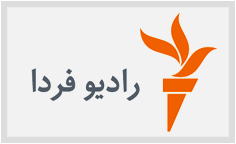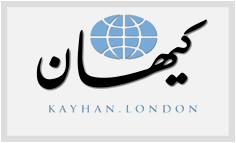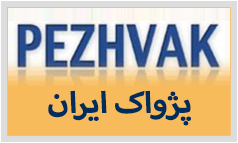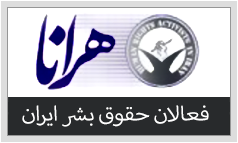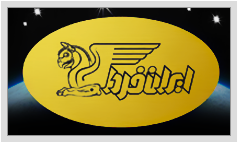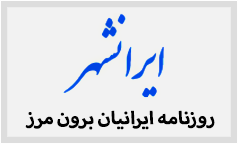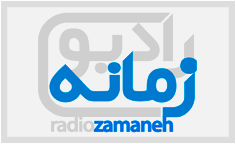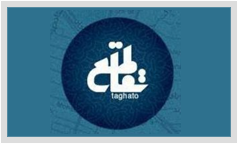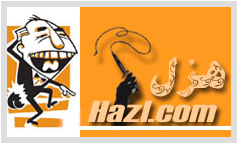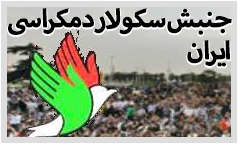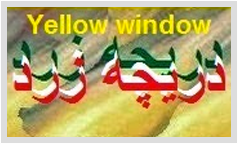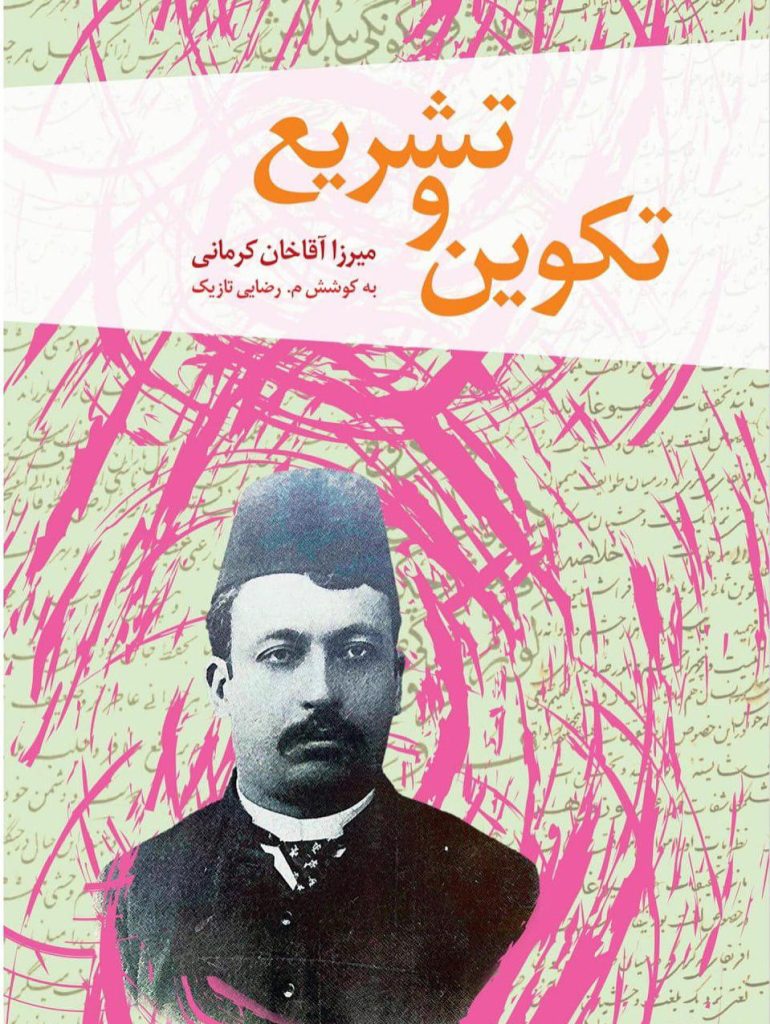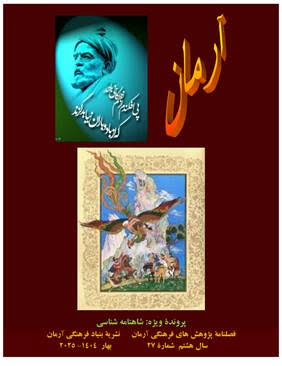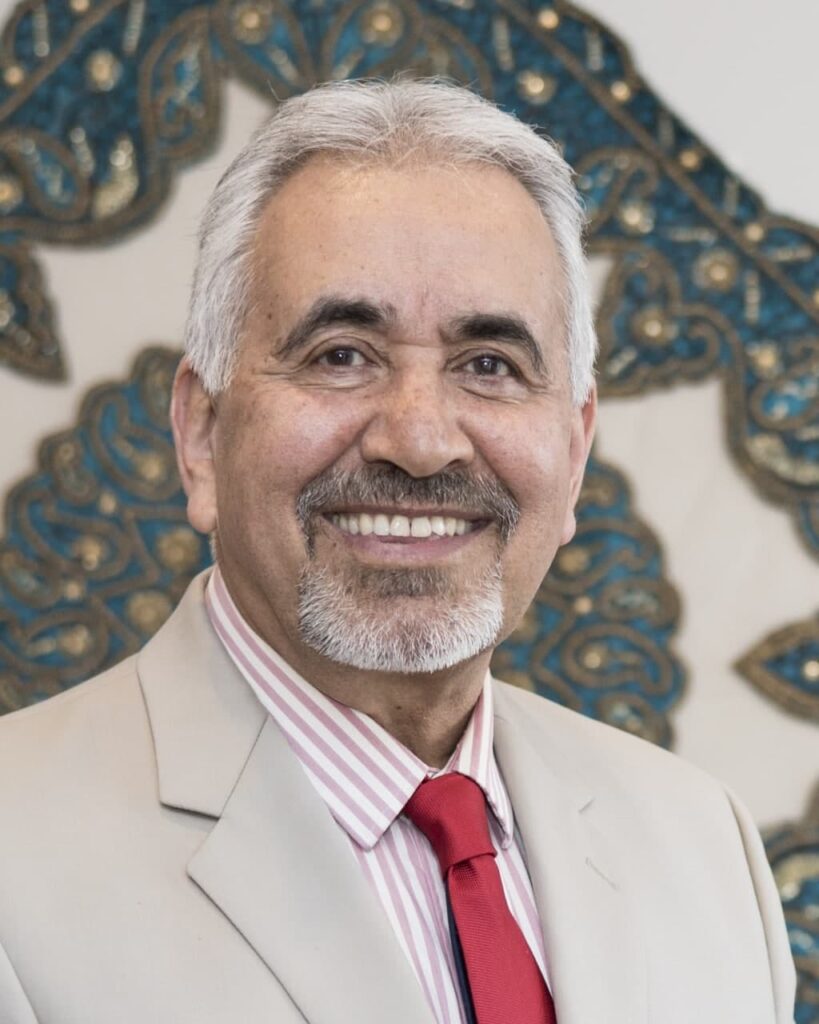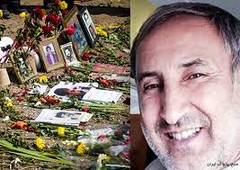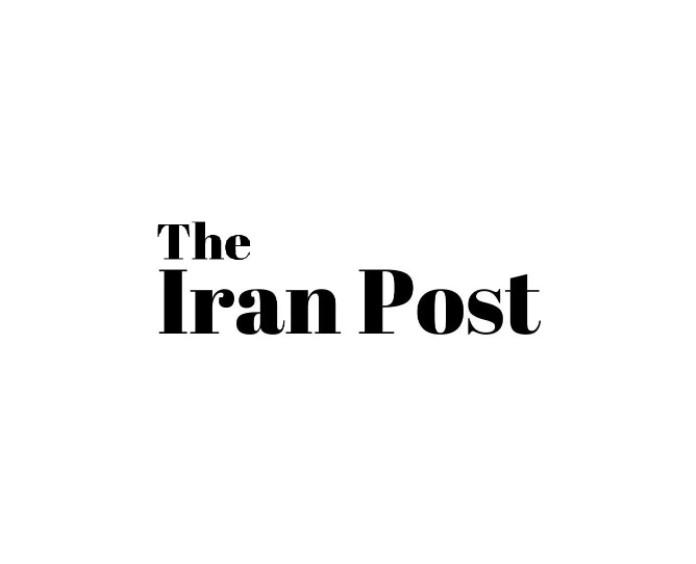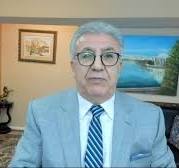
دکتر مرتضی انواری :
ايران امروز در بزنگاهي تاريخي ايستاده است که سرنوشت آن نه تنها بر وضعيت کنوني بلکه بر دهه ها و نسل هاي آينده نيز تاثير تعيين کننده خواهد داشت نگاهي به رخدادهاي گذشته و حال اين کشور نشان مي دهد که ترکيبي از بحران اقتصادي فشار تحريمهاي بين المللي تنش هاي منطقه اي و سرکوب داخلي دست به دست هم داده اند تا فضا را براي يک تغيير بنيادين فراهم سازند در اين ميان بسياري از تحليلگران سال 2025 را به عنوان نمادي از زمان تصميم نهايي مي دانند هنگامي که يا مردم ايران مسير سقوط تدريجي را متوقف مي کنند و با topple کردن حکومت اسلامي فعلي زمينه را براي دموکراتيزه شدن ساختار قدرت فراهم مي آورند يا با ادامه مسير کنوني خطر درگيري نظامي و تشديد بحرانهاي داخلي و خارجي بيش از پيش نمايان خواهد شد.
نگاهي به ريشه هاي تاريخي تاريخ معاصر ايران مملو از نقاط عطفي است که بارها و بارها ضرورت اصلاح يا تغيير را بر ملت تحميل کرده اند از انقلاب مشروطه در آغاز قرن بيستم گرفته تا ملي شدن صنعت نفت و سپس رويدادهاي منجر به انقلاب اسلامي 1357 بارها شاهد خيزشهايي بوده ايم که هر کدام به شکلي خواستار حضور مردم در تصميم گيريهاي سرنوشت ساز و تامين حقوق ملت بودند با اين حال در اغلب مواقع چه تحت تاثير عوامل داخلي و چه مداخلات خارجي اين مطالبات يا سرکوب شد يا به ثمر مطلوب نرسيد اکنون ايران بار ديگر در شرايطي قرار گرفته است که فشارهاي خارجي از يک سو و نارضايتي هاي داخلي از سوي ديگر پنجره اي تازه به روي تغييرات بنيادين گشوده اند پس از انقلاب اسلامي 1357 ساختار قدرت در ايران شکل ايدئولوژيک و متمرکزي يافت که بر پايه ادبيات ضداستکباري و ضداسراييلي بنا شد حکومت جديد در پي آن بود تا با شعار حمايت از مستضعفان و مبارزه با سلطه جوييهاي غرب هويتي مستقل و انقلابي براي خود بسازد در اين راه هزينه هاي کلاني صرف حمايت از گروههاي نيابتي در منطقه شد و منافع ملي ايران در اولويتي پس از اهداف فرامرزي قرار گرفت نتيجه اين روند موج تحريمهاي بين المللي و انزواي تدريجي ايران در سياست جهاني بود موضوعي که فشار مستقيم آن بر زندگي و معيشت عموم مردم تحميل شد.
تحريمها برنامه هسته اي و تنشهاي منطقه اي با آغاز دهه هاي اخير برنامه هسته اي ايران به نقطه اصلي تقابل با قدرتهاي جهاني به ويژه آمريکا و اسراييل تبديل شد ظن تلاش براي ساخت جنگ افزارهاي هسته اي باعث شد تحريمهاي گسترده اقتصادي عليه ايران اعمال شود تحريم بانکي کشتيراني بيمه صادرات نفت و بسياري از صنايع زيربنايي اقتصاد کشور را فلج کرد و ارزش پول ملي به شدت کاهش يافت اين فشارهاي اقتصادي وقتي تشديد شد که ايران به حمايت از حماس حزب الله و حوثي ها ادامه داد و تنشهاي منطقه اي را وارد مرحله جديدي کرد در اين ميان دولت آمريکا با پيش گرفتن سياست فشار حداکثري و بهره گيري از اهرم تحريم تلاش کرد که يا حکومت ايران رفتار خود را در منطقه تغيير دهد يا از درون دچار فروپاشي شود سالها از اعمال اين تحريمها مي گذرد و وضعيت اقتصاد ايران روزبه روز شکننده تر شده است توليد داخلي سقوط کرده خطوط اعتباري بين المللي مسدود شده اند و تورم سرسام آور زندگي روزمره مردم را با دشواريهاي بي سابقه مواجه کرده است با اين حال حکومت همچنان در پي تداوم حمايتهاي فرامرزي خود است و رويکردهاي ضدآمريکايي را رها نکرده است اين تعارض به تدريج زمينه را براي يک بحران جدي امنيتي فراهم کرده است در ساليان اخير حملات محدودي به تاسيسات هسته اي ايران صورت گرفته است و برخي تحرکات نظامي در مرزهاي منطقه اي نشانه اي از خطر درگيري گسترده تر هستند ناظران معتقدند که تداوم اين روند بدون تغيير بنيادين در سياستهاي کلي ايران ممکن است به يک جنگ خانمان سوز بينجامد جنگي که اگر رخ دهد عواقب فاجعه باري براي تمامي طرفها به ويژه مردم ايران خواهد داشت.
نقش مردم و ضرورتي تاريخي در چنين شرايطي نگاهها به قدرت اصلي يعني مردم ايران معطوف مي شود در اغلب برهه هاي تاريخي اين کشور هنگامي که مطالبات ملت از سوي حکومت ناديده گرفته شده سرانجام خيزشي تازه شکل گرفته است اکنون نيز براي رهايي از دور باطل تحريم سرکوب و تهديد نظامي مردم بايد بيش از هر زمان ديگري احساس مسووليت کنند و براي ايجاد تغييرات بنيادين همت ورزند يکي از گزاره هاي مهم در اين مسير آن است که ساختار قدرت کنوني با هويت ايدئولوژيک خود سازگار با اصلاحات بنيادين نيست چرا که از اساس بر پايه اصل ولايت فقيه و نظارتهاي فراقانوني بنا شده است بسياري بر اين باورند که ايران به يک گذار بنيادين از نظام اسلامي کنوني به نظامي دمکراتيک و مبتني بر جمهوريت واقعي نياز دارد تا بتواند اختلافات عميق با غرب و ساير قدرتهاي جهاني را کاهش دهد و از انزوای سياسي و اقتصادي خارج شود رسيدن به يک نظام مردم سالار مستلزم شکل گيري يک حرکت سراسري است حرکتهاي پراکنده اعتراضي در سالهاي گذشته وجود داشته اما براي تاثيرگذاري نهايي لازم است که اصناف دانشجويان زنان کارگران هنرمندان و نخبگان فکري به شکل هماهنگ در مطالبه تغيير مشارکت کنند تا حکومت وادار به عقب نشيني شود و زمينه براي رفراندوم يا هر شکل قانوني ديگري از انتقال قدرت فراهم آيد.
سال 2025 نماد تصميم بزرگ يکي از کليدي ترين مباحث در فضای تحليل سياسي ايران طرح سال 2025 به عنوان نماد تصميم برگشت ناپذير است برآيند شرايط داخلي و خارجي نشان ميدهد که ادامه حکومت اسلامي در وضعيت فعلي نه تنها بحران اقتصادي را وخيم تر ميکند بلکه احتمال ورود به جنگ يا حملات نظامي گسترده را بالا ميبرد در مقابل اگر ملت ایران با يک اراده جمعي اين ساختار را topple کرده و جايگزيني مردم سالار بنا کند ميتوان مسير تازه اي را پيش روي کشور گشود و از خطر درگيري فراگير دوري جست اين گذار نه تنها مانع از وقوع جنگ ميشود بلکه ميتواند درهاي روابط بين المللي را نيز بگشايد وقتي يک نظام دمکراتيک در ايران بر سر کار آيد نفوذ ايدئولوژيک در گروههاي نيابتي کاهش يافته و دستاوردهاي اقتصادي تازه اي حاصل خواهد شد با پيوستن ايران به اقتصاد جهاني امکان سرمايه گذاري خارجي احيا و رشد اقتصادي افزايش مييابد همچنين نقش منطقه اي ايران از يک بازيگر تنش زا به يک شريک مسووليت پذير تبديل ميشود و ميتواند ثبات و صلح را در خاورميانه تقويت کند اين روند اگرچه آسان نيست اما تنها گزينه براي پرهيز از خطر جنگي مهيب است در حاليکه قدرتهاي جهاني چندين گزينه را روي ميز دارند از تحريم بيشتر تا اقدام نظامي آنچه ميتواند سرنوشت را تغيير دهد اقدامي است که از درون ملت ايران بجوشد سال 2025 از اين رو يک نماد است تا توجه همگان را به موقعيت بغرنج و فرصتهاي محدود موجود جلب کند.
اجماع داخلي و پرهيز از تکرار اشتباهات براي وقوع تغييرات بنيادين نبايد فراموش کرد که اجماع دروني اهميت زيادي دارد يکي از آفتهاي تاريخ سياسي ايران در دورانهاي گذشته تشتت و نبود اتحاد ميان گروههاي مختلف سياسي و اجتماعي بوده است چه بسا اگر در برهه هاي حساس تفرقه و اختلافات مانع از انسجام نيروهاي تحول خواه نميشد ما امروز شاهد جامعه اي آزادتر و حکومتي پاسخگوتر بوديم همبستگي ملي اين بار بايد اولويت اصلي باشد تا از هرگونه مداخله خارجي که ممکن است منجر به هرج و مرج يا جنگهاي نيابتي شود جلوگيري گردد در عين حال بايد به ياد داشت که تجربه جنبش مشروطه نشان داد يکپارچگي مردم در مطالبه آزادي و قانون مداري ميتواند سيستم حاکم را به پذيرش اصلاحات يا کناره گيري مجبور کند اگر چه در دهه هاي بعد دخالتهاي خارجي دوباره مسير مردم را منحرف کرد اما امروز آگاهي جمعي و فضاي مجازي ميتواند از تکرار اين اشتباهات جلوگيري کند در اين ميان مساله زنان جوانان و اقوام مختلف ايراني نيز بسيار مهم است اقشار و گروههايي که از سياستهاي حاکميت کنوني بيشترين آسيبها را ديده اند و ميتوانند پيشران اصلي هر تحول دمکراتيک باشند مشارکت فعال اين گروهها در حرکتهاي مسالمت آميز مطالبه محور ميتواند نظام را در تنگناي بي سابقه اي قرار دهد تا ناگزير به واگذاري قدرت شود.
خطر جنگ و سناريوهاي پيش رو بسياري از کارشناسان باور دارند که اگر ايران به سرعت از وضعيت حاضر خارج نشود يک درگيري نظامي بزرگ ميتواند جرقه بخورد در چنين سناريويي احتمال دارد قدرتهاي خارجي با همکاري برخي همسايگان يا جريانهاي اپوزيسيون مسلح وارد يک رويارويي مستقيم با ايران شوند جنگي که تبعاتش نه تنها اقتصاد بيمار کشور را به طور کامل نابود ميکند بلکه جان ميليونها تن را در معرض خطر قرار ميدهد چنين وضعيتي ميتواند فجايع انساني بي شمار به بار آورد و زيرساختهاي عمومي را نابود سازد بعضيها اميدوارند که حکومتيان در تهران درک کنند که ادامه اين سياستها هم براي خودشان و هم براي مردم خطرناک است و بهتر است مسير عقب نشيني يا مصالحه را انتخاب کنند اما تجربه نشان داده است که نظام اسلامي حاضر نيست به سادگي از رويکردهاي ايدئولوژيک خود دست بردارد از اين رو تنها فشاري همگاني از سوي ملت ايران ميتواند شاهراه را به سوي يک گذار کم هزينه ترسيم کند در صورت وقوع يک گذار مسالمت آميز و جايگزيني ساختاري مردم سالار امکان گفتگوهاي ديپلماتيک با قدرتهاي جهاني فراهم ميشود ايجاد فضايي براي تعامل گسترده اقتصادي و گشايش بازار داخلي يکي از مهمترين دستاوردهاي اين تحول خواهد بود علاوه بر آن ارتباط تنگاتنگ با کشورهای همسايه ميتواند به تقويت ثبات و تبادلات اقتصادي منطقه اي بينجامد.
نقش نخبگان و جامعه مدني نخبگان دانشگاهي روشنفکران روزنامه نگاران و فعالان مدني همواره در مقاطع حساس تاريخ نقش مهمي در هدايت افکار عمومي و ايجاد بسترهاي نظري براي تغيير ايفا کرده اند در ايران امروز نيز بدون حضور گسترده اين قشر تحول بنيادين ميسر نيست بايد اين آگاهي ايجاد شود که نخبگان ميتوانند با روشنگري و اطلاع رساني دقيق راه عبور از فضاي ملتهب را نشان دهند در عين حال جامعه مدني شامل تشکلهاي مستقل کارگري دانشجويي و صنفي ميتوانند به صورت منسجم مطالبات خود را طرح کنند اعتراضات و تجمعات مسالمت آميز ابزارهاي قانوني براي اعمال فشار بر حکومت هستند که در صورت تکرار و گستردگي کافي ميتوانند حاکميت را به عقب نشيني وادار کنند اين روند وقتي موفق خواهد بود که تمام اقشار جامعه به طور هماهنگ در آن شرکت کنند و يک مطالبه اصلي و واضح يعني گذار کامل از حکومت اسلامي و شکل گيري يک نظام دمکراتيک را مطرح سازند.
چشم انداز ايران دمکراتيک و جمع بندي اگر ايران بتواند از درون با يک جنبش فراگير حکومت اسلامي کند و ساختاري مردم سالار و قانون مدار برپا نمايد چشم اندازي روشن در برابر اين کشور گشوده ميشود نخست آنکه تحريمها از ميان برداشته شده و امکان جذب سرمايه گذاري و فناوريهاي خارجي فراهم خواهد شد که به رشد سريع اقتصادي و مهار تورم و بيکاري ميانجامد دوم ايران ميتواند با در پيش گرفتن ديپلماسي تنش زدا و همراه با خرد جمعي نقشي سازنده در امور منطقه ايفا کند و به جاي تهديدگري و صدور بحران به يک همکار قابل اعتماد براي صلح خاورميانه تبديل شود سوم اينکه فضاي سياسي داخلي آزادتر شده و زمينه براي شکوفايي فرهنگ هنر و انديشه فراهم ميگردد جوانان و زنان ميتوانند با آزادي بيان و داشتن فرصت برابر در سرنوشت کشور سهيم شوند و دستاوردهاي بزرگي براي توسعه جامعه تحقق پيدا کند نهايتا مهمترين نتيجه آن است که ايران بالاخره از گرداب جنگهاي احتمالي و تضادهاي ايدئولوژيک با غرب خارج ميشود و در مقياس بين المللي به عنوان يک ملت قدرتمند صاحب تمدني کهن و حکومتي مردم سالار شناخته ميشود سال 2025 به نمادي تبديل شده که ميتواند زمان تصميم گيري ملت ايران باشد تصميمي که در آن يا مسير توقف سياستهاي بنيان برافکن فعلي انتخاب شده و ايران تازه اي با چهره اي صلح جو و توسعه گرا متولد ميشود يا با ادامه رويکردهاي ضدآمريکايي و تداوم حمايت از گروههاي نيابتي بسيار قريب الوقوع است که آتش درگيري گسترده اي شعله ور شود و نتيجه اي جز ويراني و آوارگي به همراه نداشته باشد اين سرنوشت در دست مردم است و بايد دريافت که مسووليت تاريخي براي رهايي ايران از استبداد مذهبي و تحريمهاي ويرانگر و خطر جنگي خانمان سوز بر دوش ملت سنگيني ميکند ما در مقطع ويژه اي از تاريخ قرار داريم مقطعي که ميتواند با اتحاد و اراده جمعي درهاي توسعه و امنيت را باز کند يا با بي تفاوتي و تفرقه زمينه سقوط هر چه عميق تر کشور را فراهم سازد.
نتيجه گيري نهايي اينکه آيا ايران در گذرگاه 2025 از بحران کنوني به سلامت عبور خواهد کرد يا نه تنها بستگي به عزم مردم و نخبگان آن دارد حکومت اسلامي نشان داده است که حاضر به عقب نشيني در برابر مطالبات حداقلي نيست مگر آنکه تحت فشاري عمومي و همه جانبه قرار گيرد از اين رو ابزارهاي مسالمت آميز اعتراضات گسترده سازماندهي تشکلهاي مدني و روشنگري نخبگان همگي ميتوانند به اين گذار سرعت دهند ايران امروز بيش از هر زمان ديگري به دولتي نياز دارد که پاسخگوي مردم باشد به جاي حمايت از گروههاي نيابتي در منطقه بر پيشرفت اقتصادي تمركز کند و با دنيا وارد تعامل سازنده شود دنيا نيز خواهان يک ايران باثبات و متمدن است نه يک ايران منزوي که هر لحظه امکان جرقه يک جنگ ويرانگر در آن وجود داشته باشد بنابراين مردم ايران موظف هستند در اين آزمون تاريخي نقشي فعال و موثر ايفا کنند اگر از اين فرصت به درستي استفاده نشود ممکن است آينده اي تيره تر براي کشور رقم بخورد اما با همبستگي ملي و يک خيزش بنيادين ميتوان سرنوشت کشور را دگرگون ساخت و کليد طلايي درهاي پيشرفت و آزادي را در دستان ملت قرار داد.
March 19, 2025
Passage to 2025 and the Great Decision of the Iranian Nation
Below is a comprehensive English translation of the original Farsi article, including additional context and elaboration to provide a clearer and more detailed perspective on the arguments presented. The article addresses a crucial turning point in Iran’s recent history, examining the roots of the ongoing crises, the pressures of international sanctions, the question of Iran’s nuclear program, and—most importantly—the responsibility and power of the Iranian people to bring about transformative change and avoid the looming threat of war. Finally, the conclusion will summarize the paper’s core contention about the necessity of transitioning to a democratic system.
Introduction: A Historical Juncture for Iran
Iran today stands at a historic crossroads that will determine not only its current situation but also the fate of future generations in the decades to come. An examination of the country’s past and present reveals how a combination of economic crises, international sanctions, regional tensions, and domestic repression has prepared the ground for a fundamental change. Against this backdrop, many analysts identify the year 2025 as a symbolic moment for a final decision. By then, the Iranian people may either halt the country’s gradual decline—by toppling the current Islamic government and paving the way for democratic governance—or, by persisting on the same course, further exacerbate domestic and international crises, even risking large-scale conflict.
Looking at the Historical Roots
Contemporary Iranian history is filled with pivotal turning points, which have repeatedly underscored the need for reform or change. From the Constitutional Revolution in the early 20th century, to the nationalization of the oil industry, and ultimately the events leading up to the 1979 Islamic Revolution, there have been multiple social and political upheavals. Each of these demanded greater public participation in decision-making and sought to safeguard the rights of the Iranian people. Nevertheless, whether due to domestic factors or foreign interventions, these popular demands were often suppressed or went unrealized.
Once again, Iran stands on the brink of fundamental change, sparked by external pressure on one side and internal dissatisfaction on the other. After the Islamic Revolution of 1979, Iran’s power structure became ideologically driven and centralized, rooted in anti-Western and anti-Israeli rhetoric. The new government aspired to carve out a distinct, revolutionary identity by championing the underprivileged and fighting what it deemed Western imperialism. However, a significant share of national resources were channeled into supporting proxy groups across the region, often overshadowing Iran’s own national interests. As a result, waves of international sanctions and progressive isolation in global politics began to weigh heavily on the Iranian public, bearing down on their livelihoods.
Sanctions, the Nuclear Program, and Regional Tensions
In more recent decades, Iran’s nuclear program emerged as the focal point of confrontation with major world powers, particularly the United States and Israel. Suspicions that Iran might be developing nuclear weapons led to the imposition of extensive economic sanctions. Banking, shipping, insurance, oil exports, and key infrastructural industries were targeted, crippling the economy and depreciating the Iranian currency. This economic pressure intensified further due to Iran’s ongoing support for groups like Hamas, Hezbollah, and the Houthis, escalating regional tensions.
In response, the United States adopted a “maximum pressure” strategy, leveraging sanctions to compel the Iranian government to alter its behavior or else face potential collapse from within. Years have passed under these sanctions, making Iran’s economy increasingly fragile. Domestic production has declined, international lines of credit have dried up, and runaway inflation has made everyday life more difficult than ever for ordinary citizens. Despite these pressures, the government in Tehran has persisted with its anti-American stance and continued support for regional proxies.
This deadlock has gradually laid the groundwork for a severe security crisis. In recent years, there have been isolated attacks on Iran’s nuclear facilities, and certain military activities near its borders hint at the risk of a broader conflict. Observers caution that continuing these policies without deep structural changes could lead to a destructive war, one that would have catastrophic consequences for all sides involved—above all, the people of Iran.
The Role of the People and an Historic Necessity
Against this fraught backdrop, attention increasingly turns to the key source of real power: the Iranian people. Throughout modern Iranian history, whenever the government has failed to heed popular demands, a new wave of protest or revolt has emerged. Now too, to break the vicious cycle of sanctions, repression, and the threat of war, the Iranian population must, more than ever, recognize its responsibility to drive fundamental change.
A crucial insight here is that the current ruling structure, with its entrenched ideological character, fundamentally resists thorough reform. It is built on the principle of “Guardianship of the Jurist” (Velayat-e Faqih) and maintains extra-constitutional oversight, leaving little space for true democratic transitions. Thus, many believe that Iran needs a sweeping transformation—moving beyond the present Islamic system to a genuinely democratic republic. This shift, it is argued, is essential to resolving deep-rooted tensions with Western powers and other global players, as well as ending the political and economic isolation hobbling the country.
Realizing such a democratic order demands a nationwide mobilization. Although protest movements have sporadically emerged in recent years, genuine impact requires coordinated action by professionals, students, women, workers, artists, and intellectuals. Only by unifying these calls for change can the government be forced into retreat, creating the conditions for a referendum or any other legal mechanism of power transition.
2025 as a Symbol of the Great Decision
Within Iranian political discourse, 2025 has become a key talking point, symbolizing a point of no return. Analysts suggest that if Iran’s Islamic government persists in its current path, not only will economic crises worsen, but the risk of war or large-scale military action may rise sharply. Conversely, if the Iranian people, with a collective will, topple the Islamic structure and replace it with a democratic system, a new road could open for the nation—one that steers clear of intense military confrontations.
Such a transition would not only help prevent a catastrophic war but could also open the door to international relations. A democratic government in Iran would significantly reduce ideological influence over regional proxies, yielding fresh economic gains. By joining the global economy, Iran could revive foreign investment and stimulate economic growth. Moreover, the country’s regional role would shift from a source of tension to that of a responsible partner that could advance stability and peace in the Middle East.
While the path toward democracy is far from easy, many analysts argue that it remains the only viable option to avoid a massive, potentially devastating conflict. With international powers weighing multiple options—from tighter sanctions to military interventions—only a homegrown, grassroots initiative from the Iranian populace can truly change the country’s destiny. In this sense, the year 2025 serves as a powerful symbol to draw attention to the precarious situation and the shrinking window of opportunity.
Domestic Consensus and Avoiding Past Mistakes
For fundamental change to occur, domestic consensus is paramount. One of the tragic lessons of Iran’s modern political history has been the fracturing and disunity among various political and social factions. Time and again, disunity has undermined the potential for a united front seeking sweeping reforms. If different segments of society fail to coordinate, the path to genuine freedom or a more accountable government is often blocked.
National unity must now top the country’s agenda, to shield it from foreign interventions that can spark chaos or proxy conflicts. Historical experiences, such as the Constitutional Revolution, show that when people unite in demanding freedom and the rule of law, the ruling regime is compelled to accept reforms or step aside. Although foreign interferences again derailed these movements in the past, today’s heightened awareness—supported by social media and the internet—can help reduce the likelihood of repeating those mistakes.
Meanwhile, the involvement of women, youth, and various ethnic communities in Iran is particularly critical. These groups have suffered most directly from the government’s policies and can be pivotal drivers of democratic change. Their peaceful protests, united under a common purpose, can place unprecedented pressure on the regime and potentially force it to relinquish power.
The Risk of War and Future Scenarios
Many experts believe that unless Iran quickly pulls out of its current predicament, a major military confrontation could erupt. In such a scenario, foreign powers—potentially allied with neighboring states or armed opposition forces—might engage in a direct conflict with Iran. Such a war would inflict not only total economic destruction on an already vulnerable country but also claim millions of lives and destroy vital infrastructure.
Some hope that the government in Tehran will come to recognize that maintaining its policies endangers not only the citizenry but the ruling class itself, making de-escalation or compromise preferable. However, experience has shown that Iran’s Islamic government is reluctant to abandon its ideological tenets without intense and unified pressure from within. If that nationwide pressure emerges and a peaceful transition to a democratic structure can be achieved, Iran would be able to negotiate diplomatically with global powers. This change in governance could allow broader economic engagement, reopening domestic markets, and strengthening economic links with neighboring countries, which would bolster both regional stability and economic growth.
The Role of Intellectuals and Civil Society
Academics, intellectuals, journalists, and civil-society activists have consistently played a critical part in guiding public opinion and laying the theoretical groundwork for political change throughout Iran’s history. In today’s Iran, large-scale participation by these sectors is likewise indispensable for any far-reaching transformation. They can illuminate the path forward, explaining complexities and mobilizing public opinion to find effective ways out of crises.
Civil-society organizations, including independent labor, students, and professional associations—are also vital. Peaceful demonstrations and gatherings remain lawful tools for placing pressure on governments; when these movements are widespread and repeated enough, they can compel a government to retreat. This effort must be united across social classes, with a straightforward, central demand: a complete transition from the Islamic government to a democratic system.
The Vision of a Democratic Iran and the Final Summary
If, from within, a broad-based movement can topple the Islamic government and establish a people-centered, law-abiding structure, Iran would face a promising future. First, sanctions could be lifted, enabling foreign investment and new technology, which would stimulate rapid economic growth and address rampant inflation and unemployment. Second, by adopting a diplomacy that stresses de-escalation and collective wisdom, Iran could play a constructive role in regional affairs—becoming a reliable partner for peace in the Middle East, rather than an exporter of tension or proxy conflicts.
Third, domestic politics would become more open, allowing for the flourishing of culture, art, and creative thought. Youth and women, especially, would have freedom of expression and equal opportunities to participate in the nation’s future—leading to major achievements in societal development. Ultimately, the country could break free from cyclical threats of war and ideologically driven hostility toward the West, reintroducing Iran to the international stage as a proud, ancient civilization governed by democratic ideals.
Hence, the year 2025 represents a moment for the Iranian nation to choose. That choice is stark: either a break with the destructive policies that have dominated so far—giving birth to a peaceful, development-oriented Iran—or a continued anti-American stance coupled with support for regional proxies, dramatically raising the likelihood of a conflagration. This moment rests firmly in the people’s hands, who shoulder the grave historical responsibility of liberating the nation from religious autocracy, crippling sanctions, and the looming threat of a catastrophic war.
Conclusion
The overarching question is whether Iran will successfully navigate its way out of the current crisis by 2025. Much depends on the resolve of its citizens and intellectuals. Time and again, the Islamic government has shown itself unwilling to accommodate even minimal demands unless subjected to broad, unrelenting societal pressure. Thus, peaceful demonstrations, organized civil-society initiatives, and incisive advocacy from public intellectuals collectively form the critical engine driving a potential transition.
More urgently than ever, Iran needs a government that is accountable to its people—one that prioritizes economic development over supporting foreign proxies, and one that can engage positively with the world. From the global perspective as well, nations would welcome a stable and democratic Iran in the Middle East, not an isolated and volatile one at perpetual risk of igniting war.
Therefore, the Iranian people are called upon to assume a proactive, decisive role in this historic test. Should they squander this opportunity, the nation’s future could grow even darker. However, through unity and a fundamental mobilization, Iran’s destiny can be reshaped, granting its citizens the precious keys to progress and freedom.










